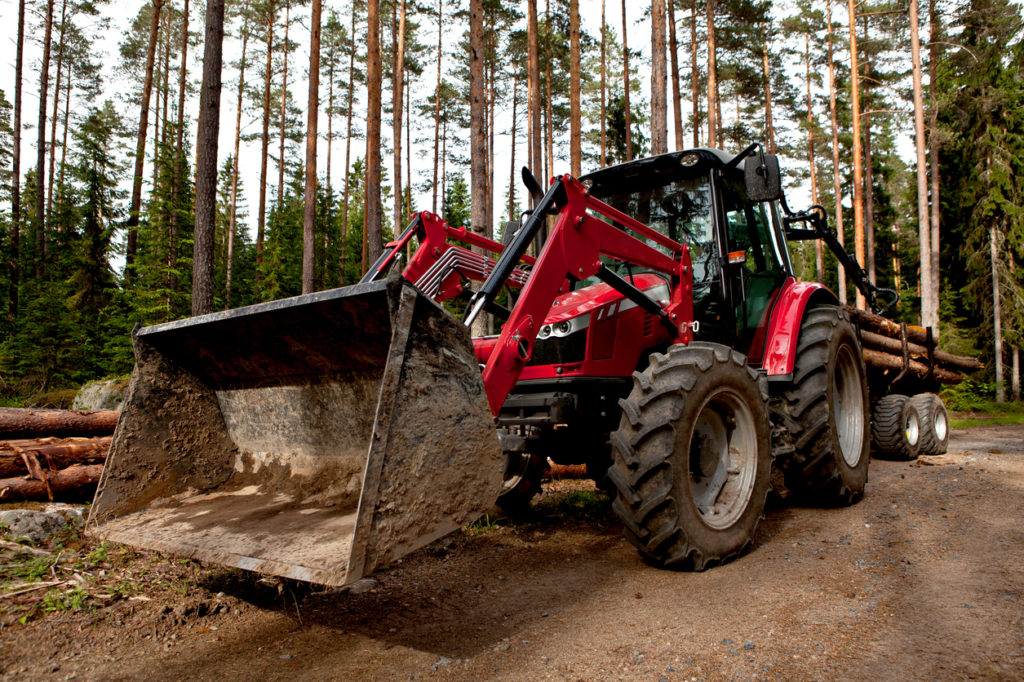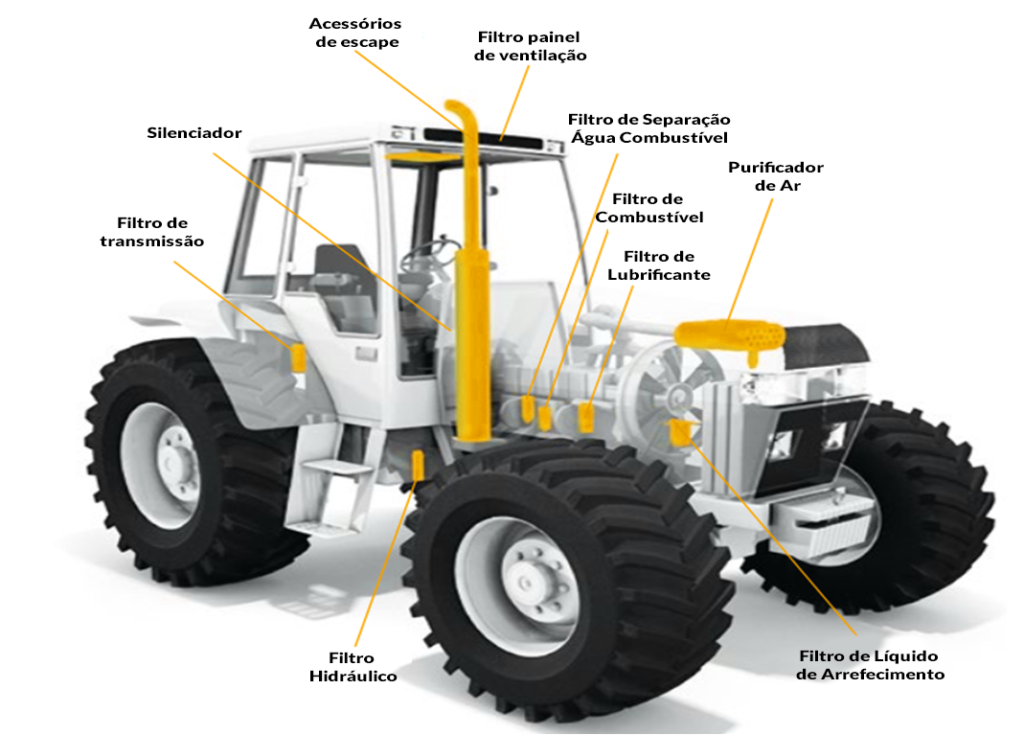Every rural producer knows that they need to maintain their tractors and implements well in order to guarantee their production. However, the multiple functions of filters for tractors and agricultural and forestry machines are not always known.
If you work with forestry or agricultural operations, you know how much your team and equipment and machinery are subject to countless variables, from climatic and environmental (sun, wind, rain, forest and agricultural pests) to infrastructure ones (quagmires, bad roads or with inadequate maintenance, work in hard to reach places, etc.).
Learn now the different functions of filters for tractors and understand why they are essential to the efficiency and reliability of work in the field.
The dirty work of forestry and agricultural operations and the importance of filters for tractors
Anyone who has ever operated agricultural and forestry machinery knows how much one is subject to the weather and the most original unforeseen events. Forestry and agricultural operations deal directly with the land, which means raising a lot of dust and generating waste even in less complex activities, such as land preparation.
Agricultural and forestry machines, in this sense, do the “dirtiest” work, because, in general, operations need to face countless weather conditions in the field, such as rain and bog, unexpected break in difficult to reach places, in addition to the routine which is already exhaustive in itself.
Machines like harvesters and chippers process forest waste while still in the field, generating particles, usually large, which can cause failure, defect or failure in the various stages of processing. This highlights the importance of filters for tractors in forestry operations.
In agricultural tractors, it is no different. In the case of mechanized cane harvesting, for example, a large amount of biomass residue is formed, in addition to the dust and by-products of combustion (soot and water vapor) of diesel oil. Similarly, when we consider tractors for soil preparation, the action of agricultural implements such as subsoiler and digger revolves the earth, forming clouds of dust that can enter the air system and the engine gears.
With contamination, unexpected problems often arise in the operation of the machine and even work accidents occur. One way to prevent these problems is to install filters for tractors – a strategic and fundamental investment that aims to guarantee the reliability of the production process and the workplace.
The different types of filter for tractors
When it comes to filter machines, we almost always remember the lubricant filter. Get to know now the other types of filters for tractors that are equally important for the maintenance of your agricultural and forestry machines.
– Transmission filter
The transmission system is composed of clutch, gearbox, differential and reducers and, as the name suggests, has the function of transmitting the force, rotation and torque of the engine to the vehicle’s wheels, making it move. The transmission fluid is what ensures that this task is successfully accomplished.
Whether your tractor has automatic transmission or manual transmission, fluid maintenance is important in order to extend the life of the parts. The transmission filter will assist in this task, providing a longer time interval between one transmission oil change and another.
– Hydraulic filter
In order to ensure that oils flow through the system, several pumps are installed at strategic points. The hydraulic filters have the function of protecting the pumps from damage caused by the intrusion of solid or liquid particles in these oils, ensuring the proper functioning of the pumping system and protecting its expensive components.
– Lubricant filter
The lubricating fluid has the functions of keeping the engine parts clean, reducing the solid friction between the components, sealing, protecting against corrosion, cooling the system and transmitting the engine’s power to the other elements of the vehicle.
That is, the lubricating oil is like the “blood” of the engine. In this sense, know the best lubricating oil filter for your machine or fleet it is an indispensable step in order to ensure the longevity and reliability of your equipment, since the filtration system will retain metallic particles from wear between the engine parts, soot and other contaminants potentially harmful to the engine.
– Engine cooler filter
The engine’s work produces heat by itself. However, agricultural and forestry tractors heat up much more, both because of the nature of the heavy work and because they are often exposed to the sun and other obstacles that force the engine to work harder.
To prevent overheating, the motors have cooling systems, which in general are like a large fan that forces air circulation and dissipates heat. This fan must be protected to prevent damage to the engine and accidents at work.
– Fuel oil filter
In order to ensure that the fuel entering the engine is of good quality, a filter must be installed at its inlet. In general, this device is made of porous paper or felt and has the function of retaining contaminants that can compromise the performance of the engine or cause damage to components, such as the injector and the hydraulic pump.
– Air filter
For combustion to occur, air must enter the engine. Seeking to avoid water contamination and other particles potentially harmful to the machine, there is the air filter, which has the function of retaining the largest impurities by centrifugation. This filter can be external or integrate the filter housing. This type of system is designed to retain dirt, dust and soot before it enters the engine.
In the case of filters for tractors, constant maintenance and cleaning are necessary to ensure that the air intake is not blocked, which would compromise the performance of the engine, since combustion would not be carried out efficiently.
– Ventilation panel filter
This filter serves to guarantee the health of the tractor driver’s workplace. It is a fundamental part of Ergonomics and Safety at work. It should be cleaned regularly and changed when necessary, trying to avoid accidents at work and illness of employees.
Thus, the main reasons for installing filters for tractors and other agricultural machines are to maintain efficiency in the workflow, ensure employee safety and avoid corrective maintenance costs, which are generally much more expensive. Count on the experience of POC Filters consultants to help you achieve better results and improve your performance in the field, rain or shine.
Find out which is the best filter for tractors in your rural company by making a freeprice POC Filters and increase the benefit-cost ratio of your fleet.





